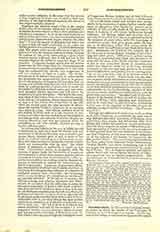

Conimbricenses (or COLLEGIUM CONIMBRICENSE), the name by which the Jesuits of the University of Coimbra (q.v.) in Portugal were known. On the register of the college at various times appeared the names of two hundred Jesuits including professors and students. Towards the end of the sixteenth century and the beginning of the seventeenth, voluminous commentaries on the philosophical writings of Aristotle went forth from the university. These commentaries were dictations to the students by the professors and as such were not intended for publication. Still they were actually published, but fraudulently. In order to intercept and disown incorrect and unauthorized editions, Father Claudius Aquaviva, the General of the Society of Jesus, assigned to Father Peter Fonseca, the provincial of the Portuguese province, the task of supervising the revision of these commentaries for publication. Father Fonseca was widely known as the Aristotle of Portugal. The different treatises appeared in the following order: (I) “Commentarii Collegii Conimbricensis Societatis Jesu in octo libros Physicorum Aristotelis Stagyritm” (Coimbra, 1591). (2) “Commentarii Collegii Conimbricensis Societatis Jesu in quattuor libros Aristotelis de Coelo” (Coimbra, 1592). (3) “Commentarii etc. in libros meteorum Aristotelis Stagyritae” (Coimbra, 1592). (4) “Commentarii etc. in libros Aristotelis qui parva naturalia appellantur” (Coimbra, 1592). (5) “Commentarii etc. in libros Ethicorum Aristotelis ad Nichomachum aliquot Cursus Conimbricensis disputationes in quibus praecipua qudam Ethicee discipline capita continentur” (Coimbra, 1595). (6) “Commentarii etc. in duos libros Aristotelis de generatione et corruptione (Coimbra, 1595). (7) “Commentarii etc. in tres libros Aristotelis de Anima” (Coimbra, 1595). This treatise was published after the death of Father Emmanuel Golz (whom Father Fonseca had commissioned to publish the earlier volumes) by Father Cosmas Maggalliano (Magalhaens). To it he added a treatise of Father Balthazar Alvarez “De Anima Separates” and his own work “Tractatio aliquot problematum ad quinque Sensus Spectantium”. (8) “Commentarii etc. in universam dialecticam Aristotelis nunc primum” (ed. Venice, 1606).
To this last treatise was prefixed a foreword disowning any connection whatever with the work published at Frankfort in 1604 and claiming to be the “Commentarii Conimbricenses”. The portion of the preface here referred to is substantially the following: “Before we could finish the task entrusted to us of editing our Logic, to which we were bound by many promises, certain German publishers fraudulently brought out a work professing to be from us, abounding in errors and inaccuracies which were really their own. They also substituted for our commentaries certain glosses gotten furtively. It is true these writings thirty years previously were the work of one of our professors not indeed intended for publication. They were the fruit of his zeal and he never dreamed they would appear in print”. The last treatise was prepared for printing by Father Sebastian Couto. The entire eight parts formed five quarto volumes, enjoyed a wide circulation, and appeared in many editions, the best known being those of Lyons, Lisbon, and Cologne. The Commentaries are in flowing Latin and are supplemented by reliable explanations of the text and exhaustive discussion of the system of Aristotle. Karl Werner says that the Jesuits of Coimbra gave to the world a masterpiece, whose equal is yet to be seen and which has received the admiration that it deserves. Father de Backer gives an exact list of all the editions. The later ones have added the Greek text of Aristotle.
JOHN J. CASSIDY

